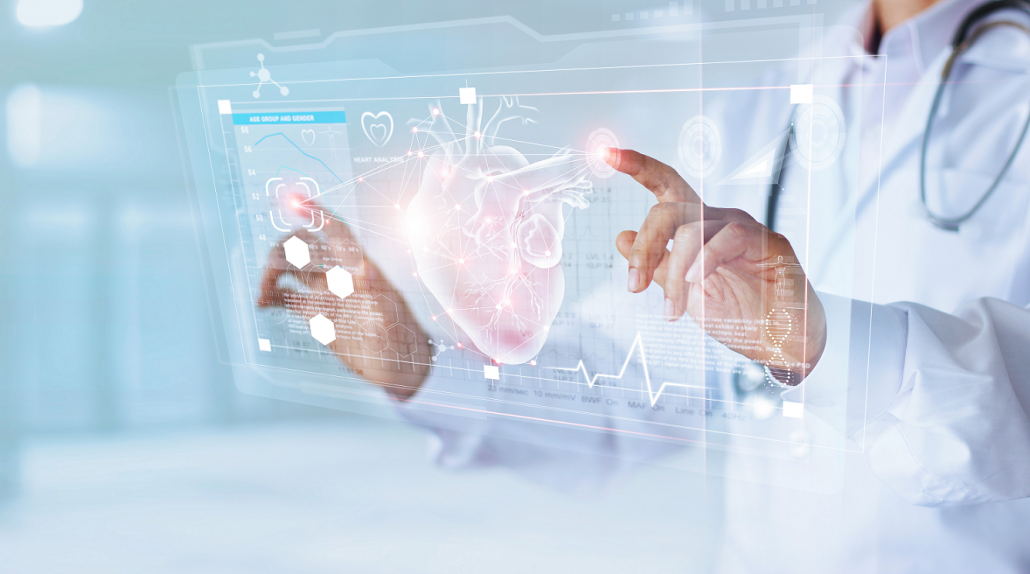Scientists from the International Clinical Research Center (ICRC) and St. Anne’s Hospital are Teaching Artificial Intelligence to Treat Hearts
Research teams from the International Clinical Research Center are involved in developing an artificial intelligence tool that will help cardiologists assess the risks of individual patients with chronic heart failure in the future. The AI4HF project, funded by the European Commission, will process patient data on a large scale, including the analysis of advanced imaging techniques such as CT scans or EKG. The software’s major benefit will be to expedite the work of first-contact physicians and outpatient cardiologists.

Artificial intelligence will predict the risk of worsening heart failure and provide personalized guidance to doctors based on a vast amount of data obtained from patients in four hospitals across four countries (Spain, the Netherlands, the Czech Republic, and Peru).
The project is led by Prof. Dr. Folkert W. Asselbergs, coordinated by the Netherlands Heart Institute, and implemented within a consortium of 16 international (associated) partners. ICRC is one of those providing real clinical data and conducting testing and validation of the software.
Chronic heart failure, a condition where the heart is unable to pump blood adequately, affects millions of people worldwide each year and poses a significant burden on healthcare systems. Timely diagnosis and selection of optimal diagnostic-therapeutic procedures are crucial for heart failure.
“Heart failure is a complex clinical syndrome, and the vast amount of patient data presents a challenge for healthcare professionals. Swiftly establishing the correct diagnosis benefits the patient. The AI tool will assist in quickly diagnosing heart diseases for both outpatient and emergency room cardiologists, expediting their referral to the appropriate specialist,” says Roman Panovský, head of the Noninvasive Cardiac Imaging research team at the International Clinical Research Center (ICRC).
AI will help doctors make better decisions
The project involves dozens of cardiologists, software developers, and data scientists. “Centralizing information is crucial. When a patient comes to the clinic, artificial intelligence will help act faster based on cases solved many times elsewhere in the world. Since the AI software relies on data from the patient, including the entire process of their treatment, it knows what really worked. It can assist me not only in diagnosing the patient more quickly but also in suggesting the best treatment,” explains Dr. Panovský.
The consortium regularly meets with patients to obtain feedback. Family members of patients are also involved in monitoring. “We want to understand the experience of the cardiac patient and teach artificial intelligence to deal with their concerns. The direct users of the tool will not only be outpatient cardiologists but also patients, and possibly other healthcare entities,” adds Dr. Panovský.
Artificial intelligence will help analyze outputs from advanced imaging techniques such as magnetic resonance or CT scans, providing detailed information about the structure and function of the heart. AI algorithms will instantly detect subtle changes and abnormalities.
AI4HF aims to contribute to a better understanding of AI tools not only among the general public but especially among healthcare professionals. “Currently, the use of artificial intelligence tools in healthcare is sometimes difficult to understand for patients and healthcare providers. Some experts do not meet it with too much confidence. And that’s what we would like to change,” says Dr. Vladimír Kincl, a researcher in the AIHF project.
Cardiologists provide feedback to the tools, helping software developers improve the outcome. The tools use complementary cardiovascular data, including imaging examinations of the heart, cardiovascular biomarkers indicating biological processes in the body, electrocardiography (EKG), and written information from clinical reports. AI will help interpret and evaluate this data more accurately.
AI processes a vast amount of data but with a strong emphasis on their security
Artificial intelligence algorithms analyze a wide range of patient data, including medical history, diagnostic tests, lifestyle, and various other factors. AI uses this information to identify individual risk factors. Patient data is entirely secure, as it is anonymized and encrypted.
“The data does not leave our facility. The result will be algorithms and procedures usable for the final tool, so that the treatment process of a new patient can be based on these facts as quickly and without unnecessary steps as possible,” says Pavel Leinveber, head biomedical engineer.
The use of artificial intelligence in healthcare raises many ethical, legal, and security questions. An international initiative has been established to address and maintain specific guidelines that will facilitate the development and implementation of AI solutions in medical practices. “The speed at which artificial intelligence is developing creates the need for clearly defined standards for its use,” adds Dr. Kincl. Concurrently with the project, the FUTURE-AI set of guidelines is created, defining rules for using the resulting software. “Artificial intelligence has the potential to completely transform healthcare.”
The International Clinical Research Center (ICRC) is a joint facility of St. Anne’s University Hospital and the Faculty of Medicine, Masaryk University.


